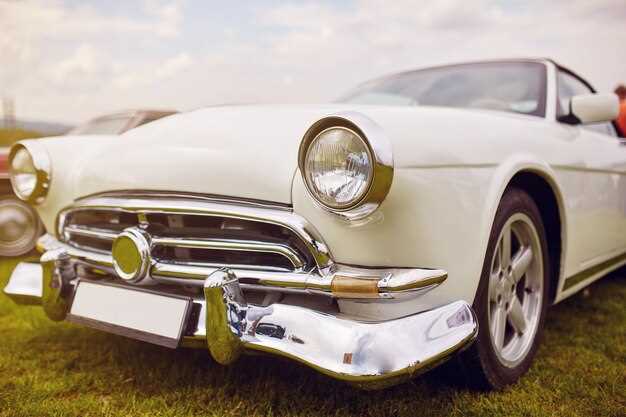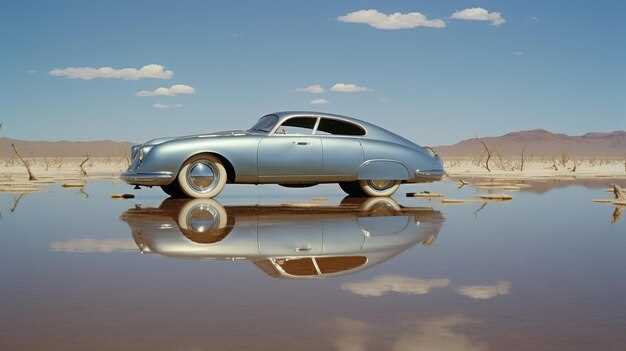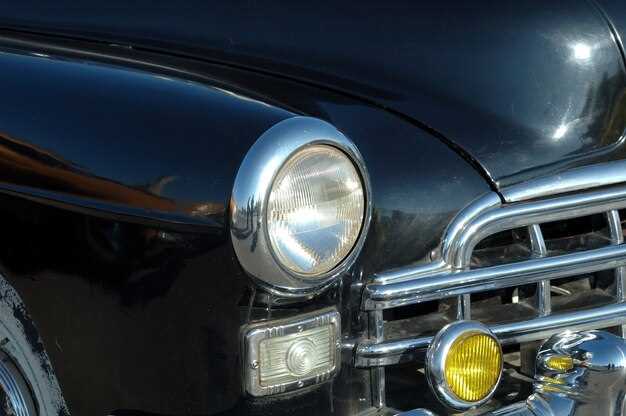

As the classic car market continues to evolve, 2025 presents a unique opportunity for enthusiasts and collectors alike to invest in vehicles that have the potential to appreciate significantly in value. The allure of classic cars transcends mere nostalgia; it embodies a passion for engineering, design, and history. Collectors are increasingly drawn to models that not only celebrate automotive heritage but also offer tangible prospects for investment.
Understanding the dynamics of the classic car market is crucial for those looking to make informed decisions. With certain brands and models gaining popularity and escalating in value, identifying these opportunities can lead to a rewarding collection. In this article, we will explore some of the top classic cars to collect in 2025, focusing on vehicles that are not only iconic but also represent smart investment choices.
As we delve into this fascinating world, it’s essential to consider factors such as rarity, historical significance, and market trends that influence desirability. The classic cars highlighted here are not just relics of the past; they are investments poised to capture the attention of both seasoned collectors and new enthusiasts, making them must-haves for anyone looking to navigate the vibrant landscape of classic automobiles.
Identifying High-Value Classic Cars for Investment in 2025

Investing in classic cars requires careful consideration of various factors that contribute to their long-term value. To identify high-value classic cars for investment in 2025, enthusiasts should focus on models that possess rarity, historical significance, and desirability among collectors.
One key aspect to consider is production numbers; vehicles with limited runs or unique features are more likely to appreciate in value. For instance, cars produced in small quantities or those that were part of a limited edition often become highly sought after, leading to increased demand and higher resale prices.
The provenance of a classic car also plays a crucial role in its valuation. Vehicles with a storied history, previous ownership by celebrity figures, or participation in notable events can command premiums in the market. Documentation proving the car’s history, originality, and any restorations performed enhances its investment potential.
Moreover, the condition of the vehicle significantly impacts its value. A well-maintained classic car with original parts and minimal modifications typically holds a higher investment worth. Potential buyers should seek cars that have been serviced regularly, with thorough records available to verify maintenance history and authenticity.
Lastly, it’s essential to keep an eye on market trends. Classic cars that are gaining popularity among collectors, such as iconic models from the 1960s and 1970s, may provide lucrative investment opportunities. Researching auction results, enthusiast forums, and automotive publications can offer valuable insights into which classic cars are poised for appreciation in the coming years.
Assessing Condition and Authenticity: Key Factors for Purchase

When considering investment in classic cars, assessing their condition and authenticity is crucial. The market for classic cars fluctuates significantly, making it essential for enthusiasts to ensure they are making informed decisions. The physical state of a vehicle directly affects its value and desirability among collectors.
Examine the body and frame for rust, dents, or previous repairs. A car’s paint and interior should also be scrutinized since original materials often enhance both value and historical significance. Finding a car that has been well-preserved or restored using original parts can significantly increase its appeal in the market.
Authenticity is equally important; you should verify that the car’s components, such as the engine and transmission, match the factory specifications. Documentation, such as build sheets or service history, adds credibility and can greatly influence a car’s resale potential. Cars with proven lineage and clear histories are invariably more sought after, making them a smarter investment.
Additionally, engaging with experts or joining classic car clubs can provide valuable insights into identifying authenticity and assessing the condition of a vehicle. Networking within the community often unveils resources and knowledge that can aid in making a wise purchase decision.
In summary, thorough diligence in evaluating the condition and authenticity of classic cars is foundational for enthusiasts looking to invest. Understanding these key factors not only safeguards your investment but also ensures that you become a proud custodian of automotive history.
Understanding the Classic Car Market Trends and Future Values
The classic car market has evolved significantly over the years, becoming a prominent avenue for investment. As enthusiasts seek unique vehicles that offer both nostalgia and potential financial gain, understanding market trends is essential for making informed decisions.
Recent trends indicate a growing interest in specific models, particularly those that blend rarity with performance. Vehicles from the 1960s and 1970s, especially limited production sports cars, continue to appreciate in value. Brands such as Ferrari, Porsche, and Lamborghini are consistently sought after, driving prices upwards.
Another factor influencing the classic car market is the increasing participation of younger collectors. Millennials and Generation Z are beginning to recognize classic cars as not just a hobby, but also as viable investment opportunities. This demographic shift is leading to a diversification in the types of vehicles that are becoming popular, with an emphasis on cars that represent their personal style and preferences.
The role of online platforms cannot be overlooked. Technology facilitates easier access to information, auctions, and peer-to-peer sales, broadening the market reach. Classic car auctions, both online and in-person, have become hotspots for investment, driving up competition and, consequently, the values of desirable models.
Additionally, external economic factors such as inflation and market fluctuations can influence classic car values. As traditional markets face uncertainty, tangible assets like classic cars are increasingly perceived as a safe place to invest money, providing potential for substantial returns over time.
Investors should also pay attention to the historical context and condition of vehicles, as authenticity and provenance play a significant role in determining value. Restoration quality and maintenance history are critical when evaluating potential investments.
In conclusion, the classic car market is vibrant and dynamic, shaped by cultural trends, technology, and economic factors. Understanding these elements is vital for enthusiasts looking to make smart investments that can appreciate in value over time.






